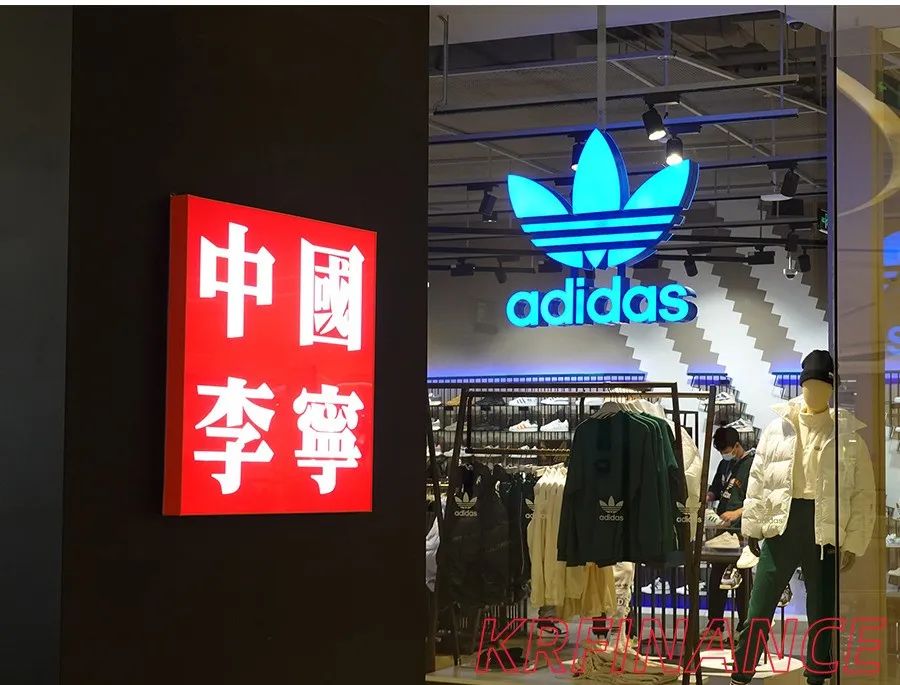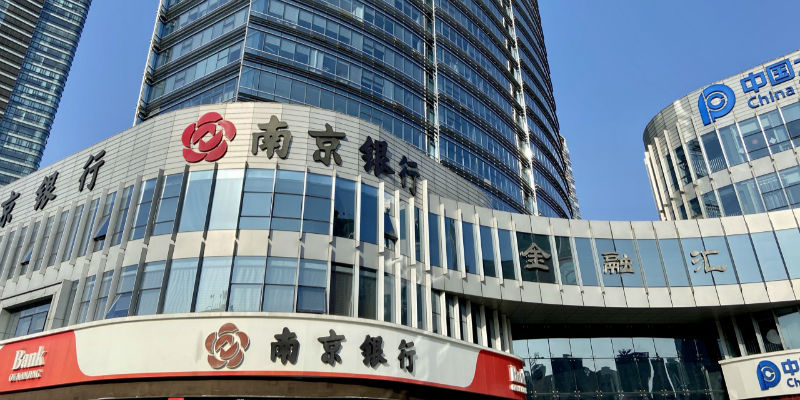Foreign consumer brands collectively contribute, why can't "foreign goods" sell in China?| 业 · Industry Observation
Author:36 氪 Time:2022.09.12

"I made a mistake in China."

Wen | Pan Xinyi
Edit | Zheng Huaizhou
Source | 36 氪 Finance (ID: krfinance)
Cover Source | Vision China
Recently, the phrase of CEO Luo Side- "I made a mistake in China" and almost set the tone for Adidas to defeat the Chinese market.
According to the financial report released by Adidas on August 4, its revenue in Greater China has grown in five consecutive quarters. Among them, the revenue in the first and second quarters of this fiscal year fell 35%year -on -year.
Once, with the traditional classic clover "shell head" and Yeezy's co -branded model, the Chinese market was sweeping the Chinese market Adidas. It began to fall into a sluggish performance in 2020. This is actually just a microcosm of many foreign consumer brands.
In addition to Adidas, there are more foreign -funded fast -fashion brands collectively withdrawn from the Chinese market, the number of Starbucks Chinese stores is overtaken by Ruixing, and the price reduction of MUJI has been reduced 11 consecutive times. The foreign brand of the person has fallen into the fate of "abandoned".
Even if the business has reduced, China is still one of the most promising consumer markets, but this "place for soldiers must compete" is facing the rise of many domestic products brands. The "arrogant" foreign consumer brand is time to let go of the body and re -examine its localization strategy.

Retreat, close stores, reduce prices
The sudden drop in passenger flow and rental growth brought by the epidemic form a strong inverse ratio, which has caused the foreign -funded consumer brands that rely on store passenger flow to fall into a dilemma.
Hi special purchase COO Zhao Peng told 36 氪: "Mall rent is increasing every year, and brands that cannot grow in the epidemic situation are under great pressure. Super low. "
At the same time, the rise of domestic brands also brings a sense of urgency. Zhao Peng said that the consumer nation's pride and self -confidence of the consumers in China Z is more obvious, and the preference for domestic goods is more obvious.
However, it is not easy for foreign brands to insight and consumer motivation behind them. Earlier, Adidas CEO Rost once said, "We don't know enough about consumers, so we have left room for those Chinese competitors who have done better" "" Chinese consumers today, the favorite products of Chinese, " "".
Under the influence of the "national tide", the popularity of Adi and Nike has gradually been replaced by Li Ning and Anta, especially the recent financial report released by Anta Group that its income in the first half of this year has surpassed Nike China and Adidas China. It should be noted that Nike's financial report data 618 promotion does not include Converse's sales.
However, the status quo of sports shoes and clothing brands is not alone, and foreign brands common in shopping malls are almost in the same dilemma.
Even the "imported" coffee industry, Starbucks, the "Big Brother", who has dominated the Chinese market for many years is no longer the only choice for consumers. Ruixing, who broke in with the "challenger" posture, has surpassed Starbucks, and the gap between Starbucks in revenue has been further reduced.
At the same time, due to the epidemic, Starbucks's decline in China continues. According to Starbucks's recently released financial report, the Chinese market revenue was only $ 540 million, a decrease of more than 40%year -on -year; sales of the same store fell 44%year -on -year, and it has declined for three consecutive quarters.
And those brands who have "personalized" in the Chinese market have also encountered the same destiny.
To go to logo and remove the well -known design, MUJI's penetration speed in the Chinese market has been far more than ten times that of Europe, and now they have to face the crisis of "domestic alternative" -thechi and OCEs such as famous products and OCE The center of the center formed a siege.
In addition to the replacement of product functions and the advantages of prices, marketing is also a trick of winning the above -mentioned many brands. As Zhao Peng said, "Chinese goods are more suitable for the stomach of Chinese people in terms of marketing capabilities, and platforms such as Douyin and Xiaohongshu make young people easier to accept."
Except for these external factors, the signs of the defeat of foreign consumer brands have long been revealed that the uncertainty of the epidemic is just letting Chen Lingyue be put under the spotlight again.

痼 痼 痼 痼 痼 痼
As Rost's "China's feeling" emphasized, even in the Chinese market, localization is still the most difficult problem for foreign brands to study.
The reluctance of water and water means elimination, and the first thing that is abandoned by Chinese consumers is fast fashion. Beginning in 2016, clothing brands including ASOS, MS, Topshop, Newlook, American brand Forever21, OldNavy and other clothing brands have successively announced their withdrawal from the Chinese market.
Since the beginning of this year, the Bershka (Bershka, Pullbear, and Stradivarius) of ZARA have been closed and offline, officially withdrawn from the Chinese market; the American clothing brand GAP is closed in many domestic cities; HM's Monki Tmall official flagship store closed store closed , The last offline store in China is also permanently closed.
The reason for the reason, the quality and design of the fast -fashion brands such as ZARA are criticized for the price and design. When the consumer is enthusiastic, the repurchase rate and the width rate cannot keep up with the rhythm. State store rental, labor costs, and marketing expenses are dragged down, and maintaining rapid new and quality assurance has become a major problem.
China is not the only position for the failure of multinational consumer brands. As early as around 2018, Japanese brand MUJI was "completely killed" in the United States. The fundamental reason was that the simple values respected by MUJI and the personalized expression of American consumers were incompatible. Such a failure is likely to continue to be staged. Since 2014, MUJI has reduced prices 11 consecutive times in China. Data show that the Group's operating profit fell by 19.4%during the first half of 2022, and net profit fell 27.5%.
For a long time, MUJI's pricing strategy in China has been criticized. Not only is the price -performance ratio, but some products are relatively different from the local price difference between Japan. In addition, in terms of design, the simple design style has not kept up with the diversified needs of Chinese consumers in recent years.
Jiang Han, a senior researcher at Pangu Think Tank, told 36 氪 that with the rise of a large number of fast -selling brands, the advantages of MUJI have been weakened. Whether it is price or product, the market of MUJI has been diluted, and the living space has been compressed.
"MUJI does not understand China's national tide, the end result is that MUJI is facing a huge development disadvantage in the Chinese market."
How to do the Chinese market?

Under the environment of sluggish global consumption, the Chinese market with huge market size and potential cannot be abandoned. This is the consistent principle of many foreign consumer brands.
Tang Ruoxiu, president and CEO of Nike Group, publicly stated: "We have been optimistic about the huge potential of the Chinese market and the future for a long time, which has never been shaken. We will continue to increase investment in China and strengthen our digital business capabilities through the China Technology Center to strengthen our digital business capabilities , Implement the strategy of 'in China, for China', and better serve Chinese consumers. "
Starbucks China CEO Cai Dezhang also emphasized the advantages of China's business environment. "The most profound feeling is the Chinese government's continuous optimization of various measures to optimize the business environment, such as continuously simplifying the entry approval process of enterprises, actively launching market supervision and innovation measures, etc. "".
The value of continuing to invest in China is still highly recognized. In the face of changing Chinese markets, it is the key to abandon the old concept and actively embrace the market.
Some foreign consumer brands have also found their own "wealth passwords" in China. For example, Japan ’s fast fashion brand Uniqlo and Korean girl fashion brands Chuu have obvious development. One of these brands is distinctive.
For another example, Uniqlo's explosive IP co -brand strategy has entered the hearts of many young consumers. Reasonable pricing, more flexible and efficient store types, plus the more powerful e -commerce platform, so that Uniqlo sinks quickly in the Chinese market and obtains more increments. In the first half of 2022, Uniqlo added 30 new stores in the Mainland, which is the fast -fashion brand with the largest number of stores.
At the same time, during the cooling period of the market, whether the profit can be realized, the greater challenge of foreign consumer brands comes from the "brand wave" of the Chinese consumer goods industry today.
Zhao Peng also expressed a similar point of view: "Under the strong supply chain of domestic products in China, the quality is getting better and better, and many foreign production plants are in China. There is no difference in quality." At the same time, compared with foreign brands, compared with foreign brands, it is compared to foreign brands. Domestic brands are bolder in innovation, iteration, trial and error, good at self -denial, and quickly head -up.
From an economic point of view, most of the foreign -funded consumer brands in China are optional consumer products. The shuttle bus that failed to take the "national tide" is always unsatisfactory in "pleased" Chinese consumers. When the low tide is coming, how should these brands that are not "must be selected" choose?
36 The official public account of its subsidiary


I sincerely recommend you to follow


Let's "share




Why can't foreign goods be sold in China?
- END -
What happened to the president, replaced the seal, and appeared on the hot search. What happened to the Bank of Nanjing?

Wang Qing, a reporter from the Economic Observation Network, leaving with the pres...
Agricultural Issuing Meitan County Sub -branch carried out the theme publicity activities of "Central Bank Payment for the People"

In order to further do a good job in the publicity of the payment system, highligh...